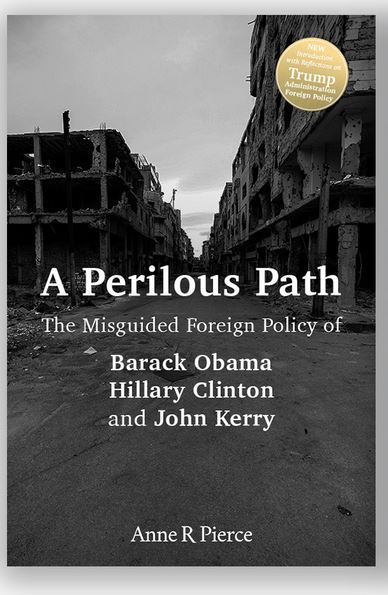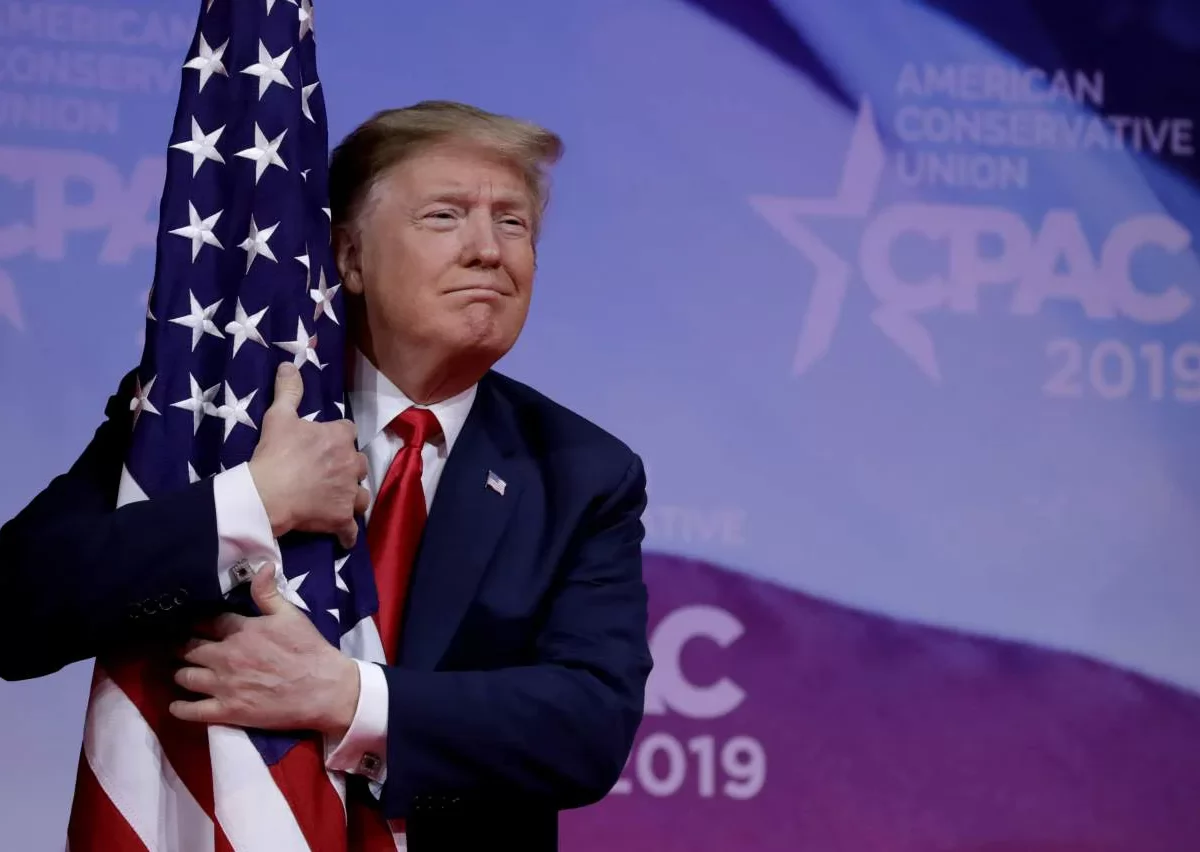Bad guys stick together. This is especially true when they seek external dominion and need help getting good guys out of the way, or when their tyranny is challenged, and they need help crushing domestic opponents, or when ruinous policies or military facts put them at the mercy of predators and protectors. Whether their relationship is a marriage of convenience, an alliance built upon common goals, or a union necessitated by dependency or force, the collusion of anti-democratic adversaries compounds the threats democracies face.
The very globalism and barrier-breaching technologies that shape modern democratic life amplify the challenges. Look across the globe today and you’ll see intersecting networks of malign forces collectively pushing the American-led post–World War II order toward a breaking point.
These challenges include proliferators spreading weapons of mass destruction and anti-democratic countries boosting each other’s economies. Additionally, there is the trading of advanced weapons and the sharing tools of propaganda and repression. Human-rights violators often defend each other and unite against liberal norms in the UN; and revanchist powers prop up failing states and detested dictators. Also, Russia, China and Iran have been luring or coercing others into their orbit. For example, Russia, Cuba, Iran and Hezbollah have been rescuing Venezuelan strongman Nicolas Maduro. China has been sponsoring North Korea and forcibly repatriating North Korean escapees. China, Russia, Iran, Cuba, Syria and others have been violating sanctions against North Korea. Iran, North Korea, Sudan and Syria are sponsoring terror. Russia has been deploying quasi-military forces in Ukraine and other global hotspots in order to have “plausible deniability,” while fomenting ethnic and political divisions in Europe and America. Iran has been deploying militias that co-opt and dominate extremist groups in Iraq, Syria, Yemen and elsewhere. Terrorists have been merging and mirroring each other’s media campaigns. Meanwhile, human, sex and drug traffickers have been forming symbiotic relationships with socialist elites and Islamist extremists. These are just some of the scenarios working against the United States.
With two of America’s intersecting adversaries attaining great-power status, threats to the world order have been further compounding. Within the past ten years, Russia and China have dramatically increased their conventional and nuclear arsenals, cyberspace, electronic warfare and artificial intelligence capabilities. These two countries have also upped their territorial claims, external aggressions, violations of human rights, and cultural infiltration and information wars against democracies. The 2019 Missile Defense Review warns that Russia and China are developing advanced cruise and hypersonic missiles “that can travel at exceptional speeds with unpredictable flight paths that challenge existing defense systems.” To make matters worse, they are economically, strategically and militarily cooperating, and working together in places as far afield as Afghanistan and the Arctic. No wonder top military officials have been describing China and Russia as the greatest threats to U.S. security and warning about the even greater threat they pose together. The two powers welcome each other’s efforts to undermine the United States since they each see a debilitated and demoralized America as requisite for replacing the American-led world order with a post-West order.
Although Iran’s Islamist priorities are obviously at odds with the priorities of China and Russia, the three countries cooperate when the end objective advances their positions and reverses the advance of liberal democracy. Iran seeks to dominate the Middle East and push the United States out of the region, disseminate its messianic ideology globally, destroy pro-democracy movements at home and abroad, and threaten the very existence of the United States and Israel. Chinese foreign relations scholar John Garver says China hopes to establish a close relationship with Iran predicated on “a common historical narrative of two illustrious civilizations humiliated in the past by western imperialism but now ascendant.” There is no better example of the sinister collusion of Russia and Iran than the Syrian war. During the war Russia shielded Syria with its air forces and advanced weapons while Iran provided ground forces and proxy fighters to save genocidal Syrian dictator Bashar al Assad from a pro-democracy rebellion. Both countries had the goal of establishing a stronghold in the Levant that would abolish American influence.
Indeed, Iran is close to its long-desired “land bridge” to the Mediterranean and is making yet more trouble for Israel and creating yet more chaos in Iraq, Lebanon and Yemen. Russia has its biggest presence in the Middle East in decades and has skillfully positioned itself as a regional energy dealer and power-broker with which countries from Turkey to Saudi Arabia to Egypt must engage. Russia and China are both wooing Persian Gulf arms buyers. China’s imperial One Belt One Road (BRI) scheme is creating a web of Middle Eastern countries indebted to China for loans and infrastructure “assistance.”
As Russian, Iranian and Chinese influence grew in the Middle East so did the insidious interconnectedness of anti-democratic forces. Assad and Putin for years tolerated ISIS so as to better annihilate pro-democracy rebels and civilians. Iran’s Syria presence was a boon to the Iranian Guard Corps, Hezbollah and other Iranian-backed militias. Russia began to work with Hezbollah and vetoed a UN Security Council resolution to hold Iran accountable for its proxy war in Yemen. Turkey, meanwhile, proceeded with a decision to purchase Russian S-400 anti-aircraft weapon systems in spite of adamant U.S. objections.
By 2008, Turkey had undertaken some market and political reforms, and was increasingly cooperative on strategic matters. If the United States had wooed this NATO ally and aided pro-democracy rebels as Turkey requested, and if it had imposed punishing penalties on Assad—thereby increasing costs to Iran and Russia as they considered entering the war on Assad’s side—and aided pro-democracy rebels as Turkey requested, then would Erdogan still have turned in an extreme direction and made decisions antithetical to NATO interests? Similarly, would Hungary be accommodating Moscow if NATO hadn’t responded weakly to Russian aggression and downplayed Eastern European security concerns? Would China’s BRI be making fast inroads into Europe and Latin America?
Revanchist powers seized the day as the Obama administration pared down military defenses and deemphasized American ideals, responded with moral and strategic lethargy to escalating hostilities, atrocities and weapons programs, and often treated enemies generously and allies ungenerously. Emboldened, they became less cooperative with the United States and more cooperative with each other. They charged forward with military expansion and raced into vacuums created by U.S. retraction. By the time the Trump administration assumed office, China and Russia had made alarming military and geopolitical strides. Assad was doubling down on war crimes. North Korea’s nuclear and missile programs had expanded exponentially. Iran had secured a weak nuclear deal and recovered leverage in the Levant. They all had come to count on a tepid American response to their severe human-rights violations.
The Trump administration has rebuilt and modernized the military, strengthened information warfare defenses and capabilities, increased sanctions on dictators, proliferators and their enablers. It has devised stronger penalties for cyber-attacks and military provocations. Insofar as it has pressed allies to join these efforts and stepped up military assistance and joint exercises (President Donald Trump’s barbs toward allies notwithstanding), it is moving in a better direction. Russia, China, North Korea, Iran, Venezuela and their accessories are under significantly more pressure with these moves than they would be without them. “Maximum pressure” on North Korea and Iran, missile defense installations in Europe and Asia, substantive military aid to Taiwan and Ukraine, and additional U.S. forces in Eastern Europe represent a more robust approach to deterrence.
But the forces aligning against the American-led world order are global, ruthless and fiercely determined and a world “safe for democracy” requires the United States to be consistent and assiduous in cultivating defensive alliances and Free World priorities. Bad guys are cohering, and we must too. Given the interconnectedness of adversaries, if the U.S. downplays relations with any ally or partner, that moves all adversaries closer to their anti-American goals. So too, if the United States overlooks the external aggression or atrocities of any adversary, that empowers or emboldens the others. Moreover, when President Trump demeans any ally or flatters any dictator, he feeds the propaganda of all our enemies.
In our best foreign-policy traditions, the United States should present an appealing democratic model, and show that Americans are steadfast allies and trade partners, generous humanitarians, fearsome defenders of freedom and unwavering advocates of human rights. Our international reputation and credibility wane when we speak out against the human-rights violations of Maduro but stay mostly silent on those of Assad and Kim Jong-un. We cannot convince adversaries that we mean business, nor be prepared for the threats we might face when we are utterly preoccupied with partisan domestic arguments. Democracy won’t appeal to groups torn between competing ideologies and allegiances if we do not articulate and disseminate the advantages of a democratic government. Think of the message it sends to those potentially drawn to our way of life if we seem indifferent to their hardships and longings.
Some think it best to respond cautiously to aggression and speak softly about atrocities so as to avoid war. But the ever-ambitious enemies of freedom smell fear, seize every opportunity, and move into every void. When democracies say and do little in response to escalating hostilities, to weapons programs and atrocities, then they are actually more likely to be forced into war by events spiraling out of control. These are dangerous times that could become much more dangerous if we don’t show the courage of our convictions and get our priorities in order.
This article was originally published in The National Interest on June 26, 2019. Read the full article here.


